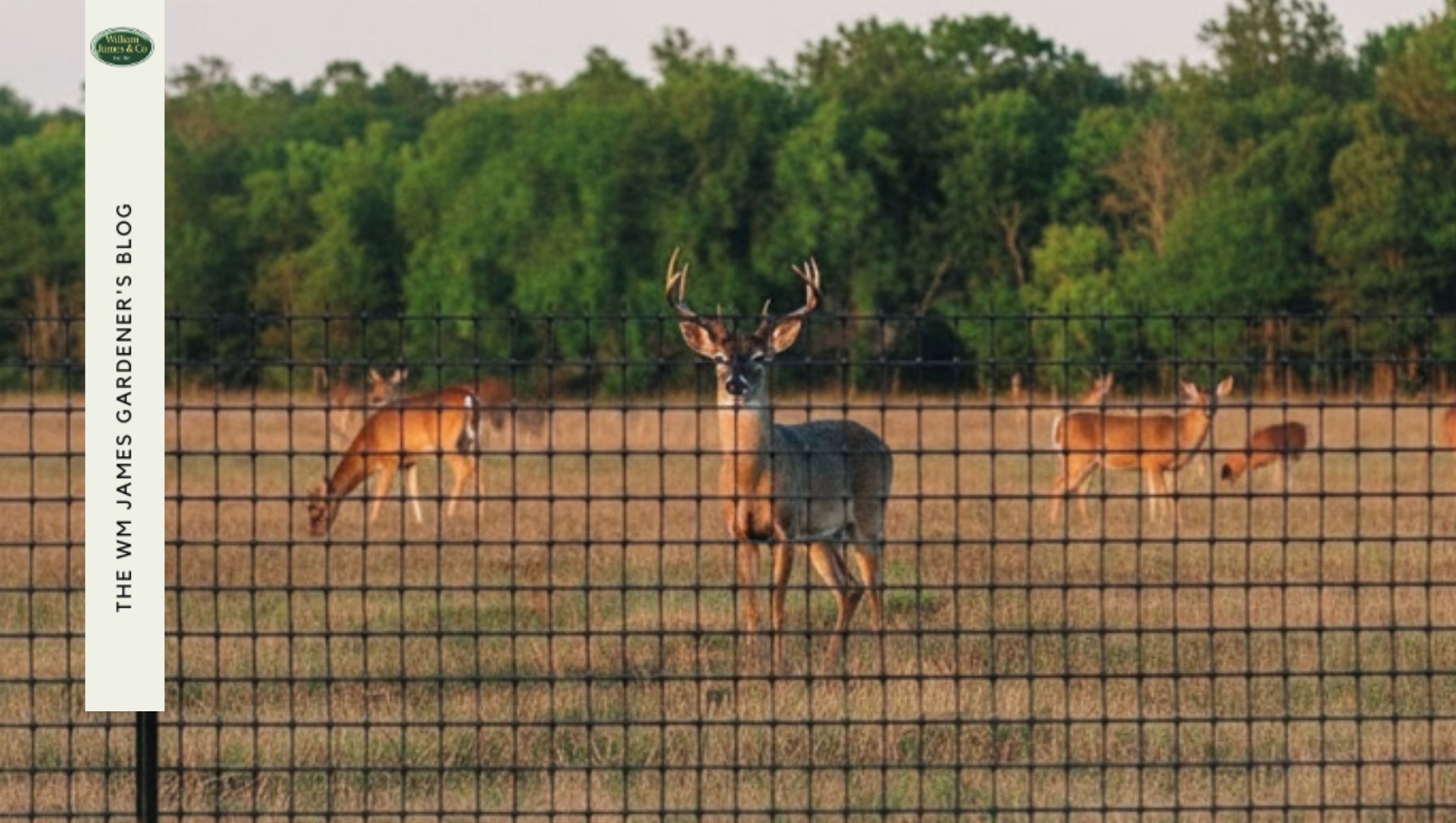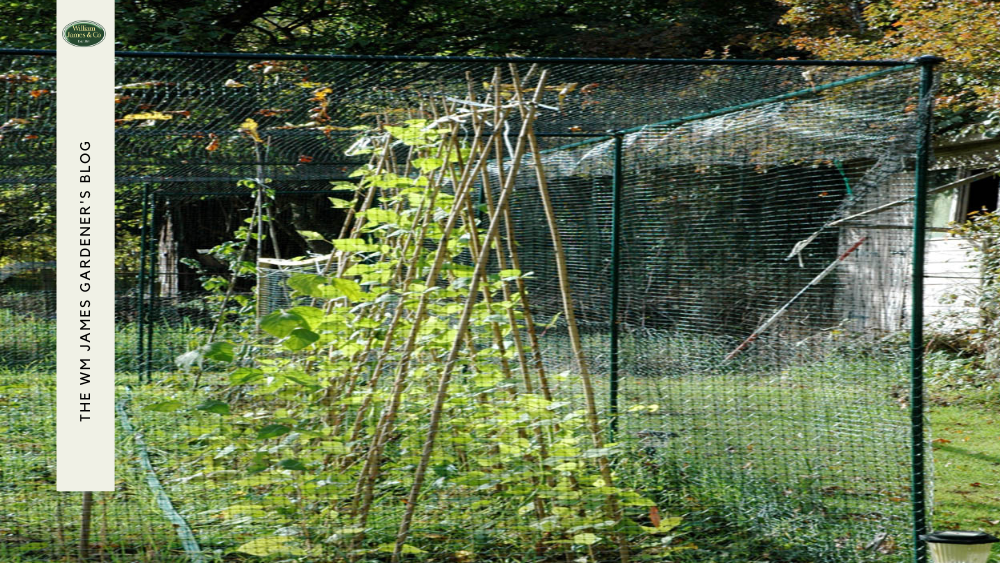We use cookies to make your experience better. To comply with the new e-Privacy directive, we need to ask for your consent to set the cookies. Learn more.
Achieve Vegetable Container Gardening Success This Season
- Admin
- WM James Gardening Blog
- 5 Jul 2023
-
22views
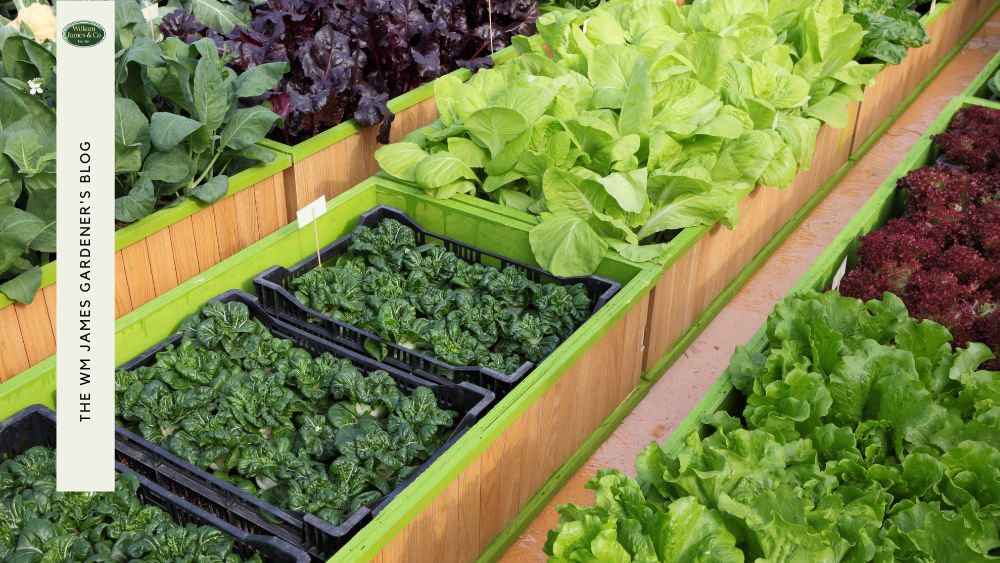
Vegetable container gardening is a great way of growing your own food without taking up too much space! Learn the best tips and tricks from WM James today.
Container gardening offers an excellent opportunity for urban dwellers or those with limited space to grow their own fresh vegetables.
With proper planning and care, you can achieve vegetable container gardening success this season.
In this guide, we will explore essential tips and strategies to help you create a thriving vegetable garden in containers in the UK.
Selecting Suitable Vegetable Containers
Before you get started on planting and growing your veg, you’ll need to choose the best vegetable containers.
Size and Depth of the Veg Containers
Choose containers that are appropriate for the size and root depth of the vegetables you plan to grow. Look for larger containers to provide ample space for root development and to prevent overcrowding.
Material of the Containers
Consider the material of the containers. Common options include plastic, ceramic, wood, bamboo, or fabric pots. Ensure they have drainage holes at the bottom to prevent waterlogging and promote healthy root growth.
Vertical Gardening
Consider vertical gardening options such as hanging baskets or vertical planters for smaller spaces. These can maximise the use of vertical space and allow for more vegetable varieties.
Choosing the Right Vegetables for Your Containers
Of course, you’ll need to select container-friendly vegetables!
Some examples include:
|
Vegetables to Grow in Containers |
|
1. Tomatoes |
|
2. Peppers |
|
3. Lettuce |
|
4. Spinach |
|
5. Radishes |
|
6. Herbs |
|
7. Dwarf or compact carrot varieties |
|
8. Beans |
|
9. Cucumbers |
You should also consider the available space, sunlight, and temperature requirements of each vegetable.
Providing Optimal Growing Conditions for Your Container Vegetables
Ensuring you provide the correct conditions for successful vegetable container gardening will help your crops to not only grow, but thrive, producing a bountiful harvest.
Level of Sunlight
Most vegetables require at least 6-8 hours of direct sunlight per day. Place your containers in an area that receives adequate sunlight, such as a well-lit balcony or patio.
Type of Soil
Make sure you have soil designed for potting that is lightweight, well-draining, and nutrient-rich.
As tempting as it is, don’t use general garden soil, as it may be too heavy and compacted for containers. Consider adding compost or organic matter to improve soil fertility.
Correct Amount of Watering
Container-grown vegetables need consistent moisture. Water the plants regularly, ensuring the soil remains evenly moist without becoming waterlogged. Check the moisture level by sticking your finger into the soil. If it feels dry, it's time to water.
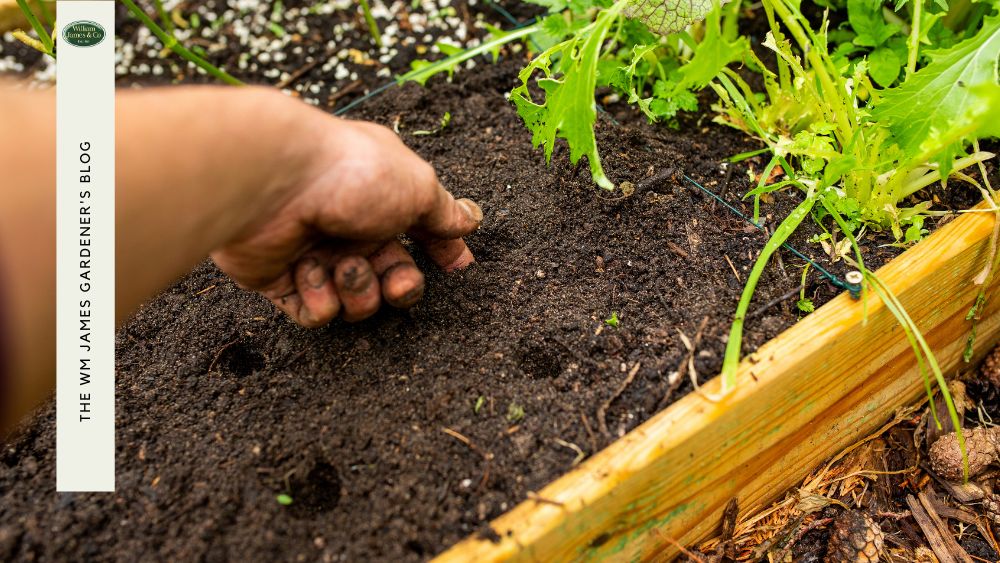
Fertilising Your Container Veg
Container-grown vegetables benefit from regular feeding. Use a balanced organic fertilizer or slow-release granules specifically formulated for vegetables. Follow the manufacturer's instructions for application rates and frequency.
Planting and Looking After Your Container Veg
Giving your veg the right amount of space to properly grow is important to prevent overcrowding. Proper spacing allows for adequate air circulation and reduces the risk of disease.
If starting from seeds, transplant seedlings into containers once they have developed a few sets of true leaves. Handle seedlings gently to avoid damaging the roots.
Some vegetables, such as tomatoes or cucumbers, may require pruning or training to support growth and productivity. Remove suckers from tomato plants and use stakes or trellises for vertical growth.
Monitor your plants regularly for signs of pests or diseases. Inspect the leaves, stems, and undersides for any signs of damage or infestation. Employ organic pest control methods such as hand-picking pests, using insecticidal soap, or introducing beneficial insects.
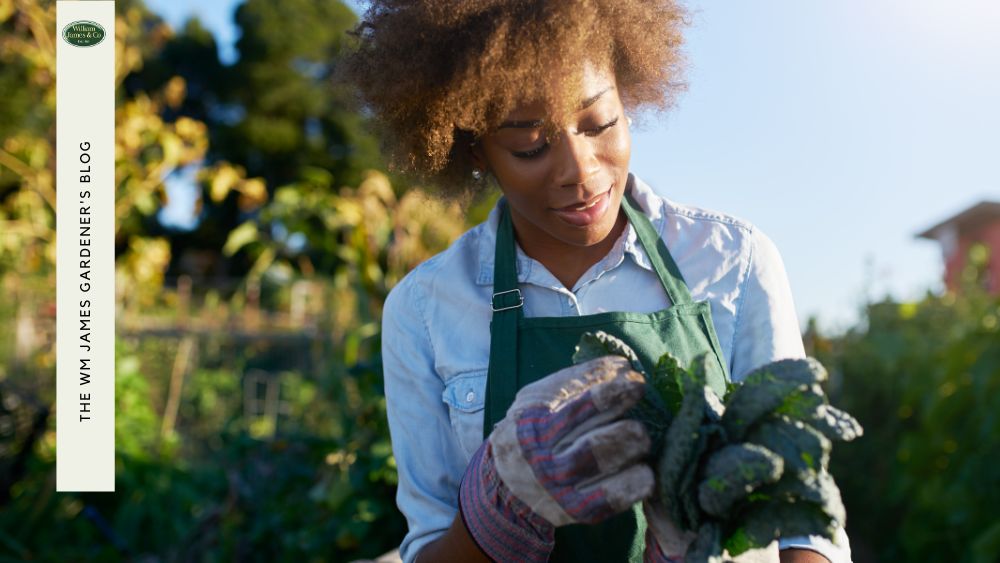
Harvesting and Succession Planting
When it comes to harvesting your container vegetables, follow the recommended harvesting guidelines for each vegetable.
Harvest when the vegetables are at their peak ripeness for the best flavour and nutritional value. Regular harvesting encourages continuous production.
Succession planting is also good to bear in mind if you want to extend your growing season. Once a crop is harvested, replant the container with a new batch of seeds or seedlings. This ensures a continuous supply of fresh vegetables throughout the season.
To minimise the risk of disease build-up, rotate your crops each season. Avoid planting the same vegetable family in the same container consecutively.
Pest Control for Your Container Crops
Companion planting techniques can be a good way to naturally deter pests. Certain plants, such as marigolds, basil, and mint, have properties that repel common garden pests like aphids, slugs, and beetles. Interplant these pest-repellent plants alongside your vegetables to create a natural defence system.
To protect your container garden from pests, install physical barriers. For example, you can use fine mesh netting or row covers to prevent insects from reaching your plants. This method is particularly effective against flying insects and can also protect your plants from birds and small mammals.

In case of severe pest infestations, consider using organic pest control methods. Homemade solutions like insecticidal soap, garlic spray, or neem oil can help control pests without harming beneficial insects or compromising the safety of your vegetables.
Follow the instructions carefully and apply these treatments in the early morning or late evening when pollinators are less active.
Seasonal Considerations
When you’re planting and growing container vegetables, you should also take into consideration temperatures and weathers.
Cold Protection
In the UK, frost can pose a threat to your container garden, especially during colder months or early spring. Protect your plants by covering them with fleece or bringing them indoors on frosty nights. Consider using insulated containers or placing your containers against a sheltered wall to provide additional warmth.
Heat Protection
During the hot summer months, container-grown vegetables may require extra care to prevent heat stress. Ensure adequate watering to keep the soil consistently moist and provide shade during the hottest parts of the day, either by moving containers to a shaded area or using windbreak netting to filter sunlight.
Extended Season
If you wish to extend your growing season, consider using cold frames or mini greenhouses to provide additional protection during cooler months. These structures can create a microclimate that keeps temperatures higher and allows for earlier planting in spring or later harvesting in autumn.
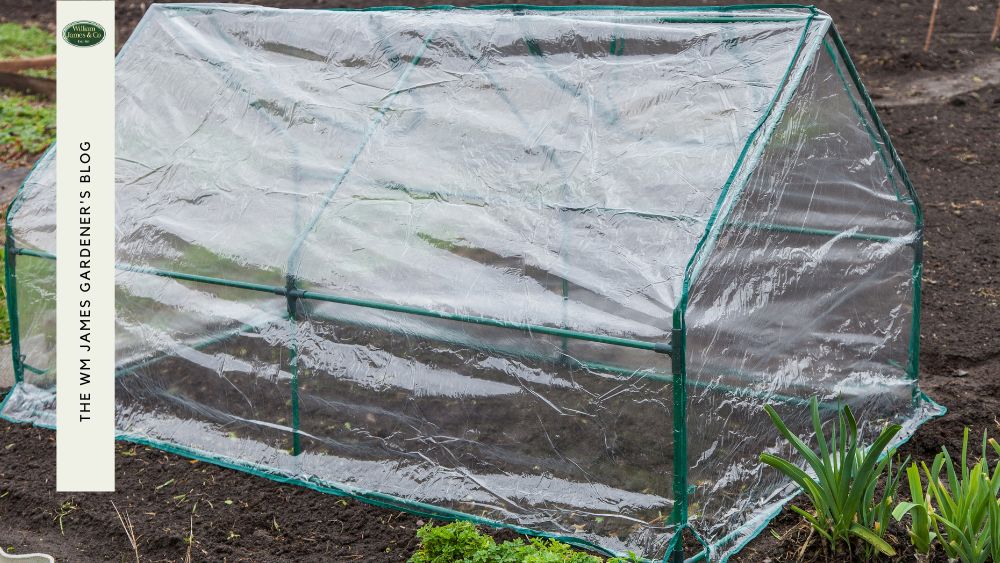
Rounding Up: The Best Ways To Make Sure Your Vegetable Containers Produce
Following these additional tips and strategies can further enhance your vegetable container gardening success this season in the UK.
Implement pest control measures, consider seasonal factors, and prioritize garden maintenance to ensure optimal growth and harvest. Embrace the joy of growing your own vegetables in containers and relish the satisfaction of enjoying fresh and nutritious produce right at your doorstep.
With proper care and attention, your vegetable container garden will thrive and provide a bountiful harvest throughout the season.
FAQs
How Can I Protect My Vegetables from Heat?
How Can I Keep Insects Off My Plants?
If you’re growing vegetables, you’re going to attract insects. Think about adding some companion plants that might deter them and add fine mesh netting that they won’t be able to get through. It’s always best to avoid pesticides with chemicals.
Can I Grow Vegetables in Containers?
Some plants will thrive more in containers than others, but there are plenty of vegetables that will. You can grow leafy veg like rocket and salad leaves, root veg like carrots, potatoes and beetroot, and herbs!
What Size of Container Should I Use for Growing Vegetables?
It’s going to depend on the vegetable in question, but remember that you need to leave lots of room for growth. Remember that roots will struggle if the container is too small, and the plant will become pot-bound.


